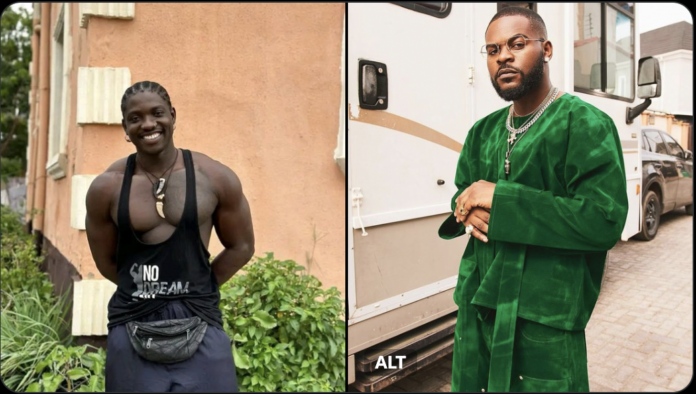An Ikeja High Court has scheduled February 19, 2025, to hear a preliminary objection in the defamation case filed by renowned human rights lawyer, Femi Falana (SAN), and his son, Folarin Falana, popularly known as Falz, against Abuja-based social media influencer Martins Otse, also known as VeryDarkMan (VDM).
Background of the Case
The case stems from an audio recording made by popular crossdresser Bobrisky, who alleged that Falana and his son were involved in perverting justice. Following this claim, VDM reportedly made a video amplifying these allegations on his social media platforms. The video allegedly portrayed Falana and Falz in a defamatory light.
In response, the Falanas filed a suit against VDM, accusing him of defamation. The plaintiffs also obtained a court order on October 14, 2024, directing VDM to take down the video from his social media pages. However, the matter has since been delayed due to legal arguments over the jurisdiction and validity of the claims.
Jurisdictional Challenge
VDM, through his lawyer, Marvin Omorogbe, has challenged the case on grounds of territorial jurisdiction. Omorogbe argued that VDM resides and conducts his business in Abuja, outside the territorial jurisdiction of the Ikeja High Court in Lagos State.
Citing Order 4 Rule 1(4) of the High Court of Lagos State (Civil Procedure) Rules, 2019, Omorogbe maintained that the court is not in a position to hear the case. He also pointed out that the alleged defamatory video was published in Abuja, further supporting his argument that the case should be heard in a court within that jurisdiction.
On Thursday, January 23, the defendant’s counsel informed the court that the plaintiffs had filed a counter-affidavit against the preliminary objection. Omorogbe requested more time to respond, and the judge, Justice Matthias Dawodu, adjourned the case until February 19 to allow for proper deliberation.
Previous Proceedings
At the last hearing on November 14, 2024, the court had set January 23, 2025, as the date to begin proceedings. However, during the session, the defendant’s counsel argued that the writ of summons served to VDM was invalid and not properly filed. The plaintiffs’ lawyer, Muiz Banire (SAN), countered this claim by stating that an originating process had been served to the parties but was not yet before the court.
The court allowed for an adjournment to enable the plaintiffs to file an administrative process to resolve the issue. This latest development adds to the legal back-and-forth that has characterized the case.
Allegations and Legal Implications
The plaintiffs accuse VDM of spreading false information that has tarnished their reputations. The video in question, reportedly shared on September 24, 2024, by VDM, allegedly repeated Bobrisky’s claims and went further to label the Falanas as untrustworthy figures.
Legal experts note that defamation cases involving public figures often attract significant public interest, as they delve into issues of freedom of expression, social media accountability, and the limits of public commentary.
In defamation suits, the burden is on the plaintiffs to prove that the statements made were false, damaging, and made with malicious intent. On the other hand, the defence typically involves proving that the statements were either true, constituted fair comment, or were not injurious to the plaintiffs’ reputation.
Broader Context
Femi Falana (SAN) is a respected figure in Nigeria’s legal and human rights community, known for taking on high-profile cases and advocating for justice. His son, Falz, is a renowned artist and social commentator who has often used his platform to speak on national issues.
The involvement of Bobrisky, a controversial crossdresser and social media influencer, has added a layer of public intrigue to the case. Bobrisky is known for making provocative statements and has a large following on social media, making his allegations a subject of widespread discussion.
VDM, who gained popularity for his outspoken views on social issues, has consistently defended his statements, insisting they are based on public interest and truth. His legal team’s argument about jurisdiction highlights a common issue in Nigeria’s judiciary, where cases involving online content often face questions about where they should be heard.
What to Expect
As the February 19 hearing approaches, both sides are expected to present their arguments on whether the Ikeja High Court has the jurisdiction to entertain the case. If the court rules in favor of VDM’s preliminary objection, the case could be transferred to a court in Abuja or dismissed outright. However, if the objection is overruled, the defamation suit will proceed to trial in Lagos.
The outcome of this case could set a precedent for how Nigerian courts handle defamation claims involving social media content, particularly when it crosses state boundaries.

